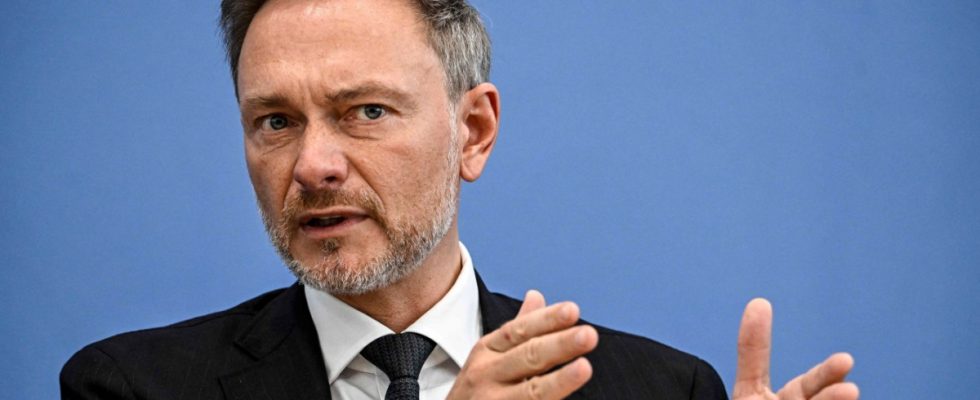The traffic light coalition is heading towards its next major construction site: the preparation of the 2025 budget. On Thursday, the Federal Ministry of Finance informed the other departments about the difficult financial and economic situation – and about how the budget process should work. The conversation between Wolf Reuter, Finance Minister Christian Lindner’s (FDP) new budget state secretary, and his colleagues from the other houses marked the start of the upcoming budget talks. One thing is clear: they are unlikely to run any smoother than last year.
Lindner himself warned his colleagues in a letter on Thursday that they would face tough times. Germany is facing “major economic and financial policy challenges,” he wrote. The medium-term growth figures are below those of previous years, and there is a “clear need for structural consolidation” in the federal budget. Lindner’s goal: a return to the spending path that was outlined before Corona and the Ukraine war.
In order to achieve this, the specialist departments should report their budgets to the Ministry of Finance by April 19th based on the existing financial planning. This means that planning should be done with the 450 billion euros that the financial plan for 2025 approved by the cabinet in July 2023 provides. For comparison: in 2023, federal spending was almost 460 billion; Almost 480 billion are planned for this year.
However, it is already clear that the 450 billion will not be the last word. There is already a gap of a good five billion euros in the financial plan; In addition, only half a billion is available from reserves instead of 6.4 billion as originally planned. Several budgetary decisions from the time after the financial plan was drawn up also still have to be taken into account, just like the savings decisions after the Constitutional Court’s ruling on the debt brake. The Ministry of Finance therefore assumes that a low double-digit billion amount will have to be saved. Lindner has asked his colleagues to “develop further savings options in their respective areas of responsibility”.
In recent years, it has been common practice for the departments to first agree on “key figures” – their budget framework, so to speak – with the Ministry of Finance before, in a second step, drawing up their budgets with all expenditure titles. But this time, Lindner said in his letter that it was “not productive” because “there are no additional financial resources available for distribution.” Translated, this means: The finance minister wants to save himself the lengthy preliminary negotiations and instead demands a “title-specific” list of budgets – with the aforementioned financial planning as an upper limit. As a precaution, he warned in his letter: “If the registrations do not meet the department-specific upper limits, they cannot be accepted.” And: “This procedure has been agreed with the Federal Chancellor and the Vice Chancellor.”
Lindner and Habeck agree on the analysis, not on the conclusions.
Budget planning is also made more difficult because the German economy has lost ground in international competition and is unlikely to grow or even shrink in 2024. Lindner agrees with Economics Minister Robert Habeck (Greens) that the government must therefore help companies and improve competitive conditions. Corresponding discussions are already underway, as confirmed in government circles. However, they are extremely difficult because Lindner and Habeck agreed on the analysis, but not on which conclusions had to be drawn.
While the Finance Minister is considering, among other things, tax cuts for companies, the Vice Chancellor is considering targeted programs to increase investment and subsidize promising industries. In addition, from the point of view of the two ministers, the Federal Chancellor is also proving to be more of an obstacle than a help. Unlike Lindner and Habeck, Olaf Scholz (SPD) believes that the economic situation is less bad than the mood and that the government should make many smaller adjustments instead of making big decisions.
However, Lindner has not tired of repeating his call for a fundamental “economic turnaround” and a “growth package” for weeks. According to the Finance Minister, the latter would have to include, in addition to lower corporate taxes and less bureaucracy, further steps to reduce energy prices, streamline administrative procedures and address the shortage of skilled workers. All of this would then have to be incorporated into the budget.

